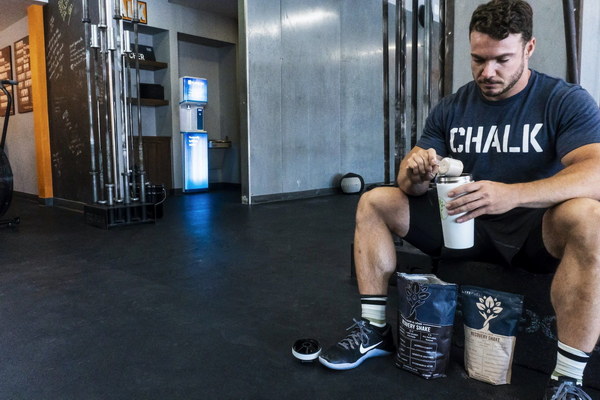Maximizing Muscle Growth Post-Workout Fitness Strategies for Enhanced Recovery and Strength
After a grueling workout session, your body is in need of recovery and nourishment to build muscle and enhance performance. The post-workout period is a critical window for optimizing muscle growth and recovery. This article delves into the best strategies to maximize muscle growth post-exercise.
1. Hydration is Key
The first step in post-workout recovery is to replenish the fluids lost during exercise. Dehydration can impair muscle recovery and performance. Aim to drink water throughout the day and consume electrolytes like sodium, potassium, and magnesium to maintain proper hydration levels.
2. Protein Intake
Protein is essential for muscle repair and growth. Consuming a protein-rich meal or supplement within 30 minutes to 1 hour after your workout provides the necessary amino acids for muscle recovery. Opt for a high-quality protein source like chicken, fish, lean beef, dairy, or plant-based options such as beans, lentils, or tofu.
3. Carbohydrate Replenishment
Carbs are crucial for refueling your muscles and replenishing glycogen stores. Including a source of carbohydrates in your post-workout meal will help speed up recovery and improve muscle protein synthesis. Good choices include whole grains, fruits, vegetables, or a sports drink.
4. Post-Workout Nutrition Timing
Timing your post-workout nutrition is vital for maximizing muscle growth. The 30-minute to 1-hour window after exercise is the most critical period for muscle recovery and protein synthesis. Consuming a balanced meal or a protein shake with carbs within this timeframe will enhance recovery and muscle growth.
5. Rest and Sleep
Rest is essential for muscle recovery and growth. After a workout, give your body time to repair and rebuild muscle fibers. Aim for 7-9 hours of quality sleep each night to support muscle recovery and overall health.
6. Stretching and Foam Rolling
Incorporating stretching and foam rolling into your post-workout routine can help reduce muscle soreness, improve flexibility, and enhance recovery. Spend 10-15 minutes stretching major muscle groups and foam rolling areas of tension to promote blood flow and muscle relaxation.
7. Active Recovery
Active recovery exercises, such as light jogging, cycling, or walking, can help increase blood flow to your muscles, aid in recovery, and prevent muscle stiffness. Engage in low-intensity activity for 10-20 minutes after your workout to boost recovery.
8. Supplements for Muscle Growth
While a balanced diet is the cornerstone of muscle growth, certain supplements can complement your post-workout routine. Consider incorporating these supplements into your regimen:
- BCAA's (Branched-Chain Amino Acids): BCAA's are essential amino acids that can help reduce muscle soreness, improve recovery, and support muscle protein synthesis.
- Creatine: Creatine is a popular supplement that can enhance muscle strength, improve workout performance, and aid in muscle recovery.
- Beta-Alanine: Beta-Alanine can help delay muscle fatigue and improve endurance during high-intensity exercise.

- Omega-3 Fatty Acids: Omega-3's are anti-inflammatory and can help reduce muscle soreness and inflammation.
In conclusion, maximizing muscle growth post-workout involves proper nutrition, hydration, rest, and recovery strategies. By focusing on these key aspects, you can ensure that your body has the tools it needs to rebuild and grow stronger. Remember that consistency and patience are crucial for achieving long-term results in muscle growth and fitness.









